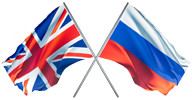SOURCE – CONSERVATIVE HOME
Hannah David is the National Director of the Conservative Policy Forum, and was the Parliamentary Candidate for Harrow West in the 2015 General Election
The reality of Britain leaving the European Union is starting to solidify in the minds of the financial markets, the EU establishment and the British public. Whilst the short term-currency turbulence may be worrying people planning a holiday to the United States and beyond, of more lasting significance may be the reaction of the European elites. For example, we have recently had Francois Hollande talking about “punishing” Britain in the Brexit negotiations to discourage other countries from leaving the EU, and Jean Claude Juncker saying that Britain can only have access to the Single Market if it allows complete free movement of labour from the EU.
But the EU elites should grasp that any attempt to “punish” Britain or seek to put us in a uniquely disadvantageous position will have consequences both for the EU itself and the wider international situation. For in economic terms, this idea of punishment is a two-way street. Britain runs a significant trade deficit with the rest of the EU: in layman’s terms, we buy more of their stuff than they buy of ours. Therefore a disadvantageous trade deal is likely to hit German car makers and French farmers as much as it is likely to hit British financial services.
A broader issue is that this confrontational attitude is likely to force Britain to reconsider its international position. The power blocks of China, the United States and the European Union mean other countries have to fend for themselves. In the British context, this means we cannot follow the old pattern of going along with every EU and United States position. As a country, we will have to fend for ourselves.
In the case of Islamist terrorism, it is clear that it is in our, the EU’s and the USA’s common interest for us to continue close co-operation. In the case of Russia, such urgency does not exist. After all, what vital UK interests does Russia threaten? Were our firms to be discriminated against in the EU, our oil companies and financial firms could seek stronger relationships with Russia, which EU sanctions would prevent EU companies from doing.
This is not to say we would suddenly leave NATO and vote with Russia every time in the UN Security Council, but it does mean that we should put our own national interest first. If the EU turns hostile, we will no choice but to reach out to non-EU countries – whether Russia, China or Switzerland, a country that is facing its own challenges from EU bullying over the free movement of labour. A regular bi-lateral meeting with Switzerland would seem another sensible step, with the exploration of joint initiatives, even if this is only in relation to dealing with the EU.
Whilst working with Switzerland is likely to be uncontroversial, the idea of reaching out to Russia may shock. However, we all must accept and understand that the world has changed. We are on our own as a country once again, and cannot afford to think we are either still an EU state or a world power on our own. The very threat of reaching out to Russia may make our neighbours in the EU reconsider any idea of punishing us. After all, the EU is not Europe: the latter is a wide continent that stretches from London to beyond Moscow, with Switzerland in the middle.

